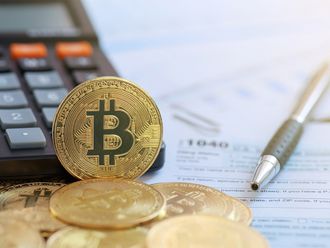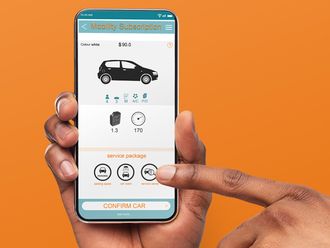If London is deemed as the foreign exchange transaction hub and New York for equities, where is the Islamic finance transaction hub? Or is this question ahead of its time? This is not the same as large dollar amount of sukuk listed on Nasdaq Dubai or large volume of sukuk from Malaysia.
It's less about listings, and more about liquidity, as the former is attracted to the latter.
The world's corporations, governments, banks, funds, and investors look at New York, London, Frankfurt, and Tokyo as places for deploying investments and raising capital. For Islamic finance, the usual suspects of hubs, from London to Bahrain/Dubai to Malaysia, are the appropriate places for Islamic finance transaction hubs. Thus, the concept of a single global Islamic stock exchange or a single hub, representing the $1 trillion (Dh3.67 trillion) industry, may not be viable because of complexities of cross-border regulations and taxes, Sharia standards, and dispersed fragmentation of Islamic finance.
The challenge in Islamic finance is fragmentation, 450 institutions in 90 countries, hence, products and players inability to act as a seamless financial community and transact. As an Islamic finance hub becomes yesterday's news, transactions or trading is the need of the hour for Islamic and conventional users. Now, the time has arrived to internationalise and institutionalise Islamic finance, meaning going from bi-lateral price discovery and liquidity, i.e., over the counter (OTC), to multiple price discovery, liquidity and transactions.
Islamic equity investing
If one examines the S&P Global Shariah index, nearly 85 per cent of its market capitalisation of $14 trillion is in G-20 countries like the US, UK, Japan, etc. Thus, Islamic equity investing is not about in Muslim countries with stock exchanges. Put differently, present day Islamic equity investing is in screened companies off of S&P 500, FTSE 100, CAX, DAX, and Nikkei, hence, an Islamic equity transaction hub are G20 countries.
Islamic funds
Islamic indices are the DNA for Islamic funds. According to Lipper data, March 2010, there are 560 Islamic funds with total assets under management of $37 billion, but only five countries represent 81 per cent of all funds: Malaysia (199 funds) followed by Saudi Arabia (146), Indonesia (44), Pakistan (35) and Kuwait (33). For Islamic funds to have the widest possible cross appeal and access, established investment vehicles like an Exchange Traded Funds (ETFs) are the need of the hour, but only 4 per cent (or 25) of all funds are passive and only 15 (2.6 per cent) are Islamic ETFs.
Murabaha
It is estimated daily Murabaha transactions are about $6-$10 billion, and they are broker intermediated on the London Metals Exchange (LME). We have been hearing from some Malaysian bankers about ‘leakage,' whereby Islamic moneys find themselves in conventional liquidity instruments. Thus, as a possible result of ‘leakage,' Malaysia recently launched a commodity Murabaha platform, Bursa Suq Al Sila, but, to date, the GCC Islamic banks and subsidiaries/windows have not looked eastward to address their ‘short' terms needs. Thus, short-term liquidity needs of Islamic banks are addressed in a G-20 country.
Sukuk
Saudi Arabia launched a sukuk and bond platform in 2009, although the uptake has been slow, the effort is to be commended as bank financing becoming challenging (collateral impact of crisis), sukuk will play important part in long term financing in build-out of the economic cities, corporates, like Saudi Basic Industries (Sabic), becoming frequent issuers, and potential for Islamic mortgages bundled into listed asset backed Sukuk (when mortgage law finally approved).
But, today, a country hosted Sukuk platform may not be enough as syndicated Islamic loans and Sukuk private placement compete with public listing sukuk. According to Thomson Reuters, sukuk data includes:
- Total sukuk issues outstanding: 1546
- Total outstanding value: $130.7 billion
- Total listed sukuk: $36.7 Billion
- Total unlisted sukuk $94 Billion
- Total Islamic syndicated loans: $85 billion
It is well-known that supply constraint of sukuk is hindering secondary market liquidity development, as most held to maturity accounts. Now, combine supply constraint to private placement of sukuk (72 per cent) and use of (the efficient) Islamic syndicated loans, it means today a single sukuk country platform becomes a challenge to attract secondary market liquidity.
The gateway
The vision for Islamic fin-ance transactions centres may be clear, but the roadway has not only domestic speed-bumps, but also nationalist pot-holes. In examining the decades of experience of conventional finance, a conclusion is a platform that is both neutral and has global reach will attract a global financial community for multiple price discovery, liquidity and transactions.
The writer is Global Head of Islamic Finance at Thomson Reuters. Views expressed are his own and do not reflect that of his organisation or of Gulf News.












